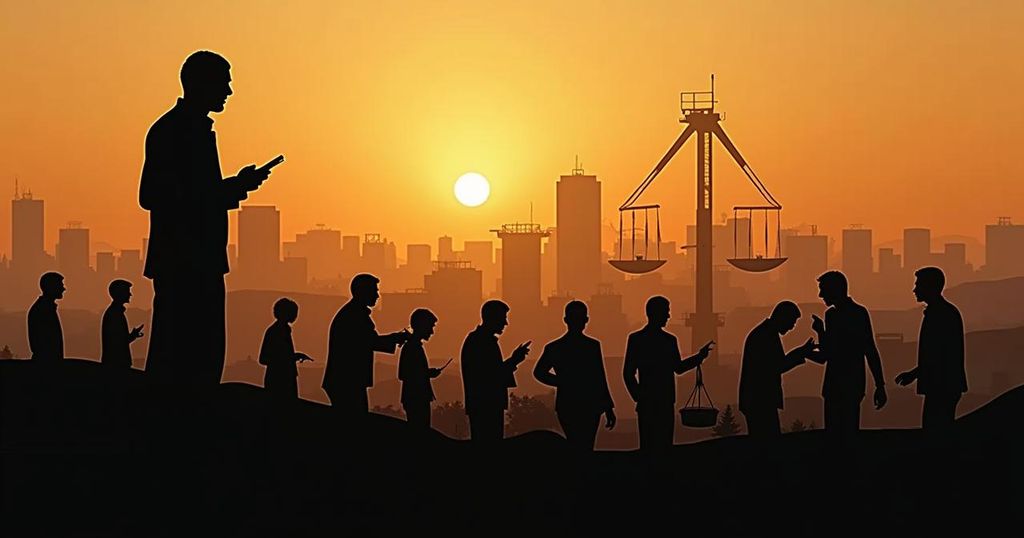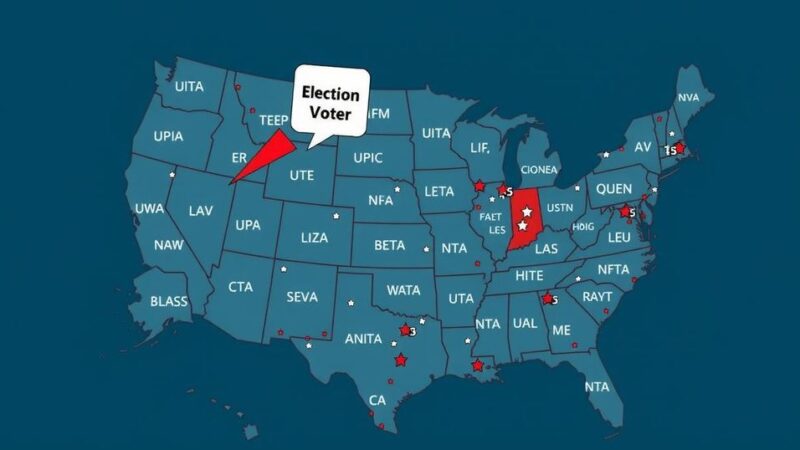Tunisian authorities have severely undermined the integrity of the October 6, 2024 presidential election by amending the electoral law just days prior, arresting opposition candidates, and taking measures against the media and civil society. With over 170 political detainees and restrictions on election observers, concerns regarding the fairness of the election process are mounting. Human Rights Watch calls for the release of detained individuals and for an end to oppressive practices ahead of the election.
The Tunisian authorities have significantly compromised the integrity of the upcoming presidential election scheduled for October 6, 2024, following recent amendments to the electoral law, according to a report by Human Rights Watch. In a shocking move, the government excluded or arrested opposition candidates days before the election, alongside imposing arbitrary restrictions on political adversaries, independent media, and civil society organizations. On September 27, Tunisia’s Assembly of the Representatives of the People enacted a law that effectively eliminated the Administrative Court’s jurisdiction over electoral matters, stripping it of vital oversight functions meant to safeguard against electoral abuses. In the wake of mass arrests, more than 170 individuals, including over 110 belonging to the Ennahda opposition party, are currently detained on political grounds or for exercising fundamental rights. Additionally, the electoral commission took the controversial step of denying accreditation to election observers and engaged in targeted actions against various media outlets. Human Rights Watch’s Bassam Khawaja stated, “Tunisian authorities are systematically placing obstacle after obstacle in the way of a fair election and opposition candidates being able to campaign for president freely.” This pattern of behavior is evident as the authorities manipulated electoral laws shortly following the Administrative Court’s mandate to reinstate previously excluded candidates. Despite this ruling, the electoral commission proceeded to commence the campaign on September 14 with only three approved candidates, dismissing the court’s authority. The ongoing crackdown on dissent includes the arrest of over one hundred Ennahda members and supporters, with many detained under the stringent 2015 counter-terrorism law. As part of its broader strategy to suppress opposition voices, the government has also targeted prospective presidential candidates, with at least nine being prosecuted or jailed since the electoral period began on July 14. One of the sanctioned candidates, Ayachi Zammel, was sentenced to 12 years in prison on various charges, including falsifying signatures. Furthermore, civil society organizations have faced intensified scrutiny, with the electoral commission denying accreditation to prominent observer groups, I Watch and Mourakiboun, on dubious grounds claiming foreign funding issues. Several media entities also face legal challenges instigated by the electoral commission, which has imposed further restrictions on free expression. Tunisia’s obligations under the International Covenant on Civil and Political Rights (ICCPR) to uphold fair electoral practices and ensure citizens’ rights are vitally endangered by these actions. The Human Rights Committee has underscored that freedoms of expression, assembly, and association are fundamental for the proper execution of electoral rights. Khawaja emphasized the urgent need for the government to cease these arbitrary detentions and allow civil rights groups and media to operate without obstruction. He concluded that the ongoing crackdown severely undermines the legitimacy of the electoral process.
The political landscape in Tunisia has been tumultuous since the 2011 uprisings, which aimed to establish a democratic governance framework. However, recent developments have raised concerns regarding the erosion of democratic norms and the rule of law as authorities have engaged in systematic crackdowns against opposition parties, civil society, and independent media. The amendment of electoral laws ahead of crucial elections appears to undermine the already fragile political processes and raise significant questions about the likelihood of free and fair elections.
In summary, the impending presidential election in Tunisia is overshadowed by deliberate actions by the authorities to limit opposition participation and suppress dissent. Through recent amendments to electoral legislation, mass arrests, and undue restrictions on civil society and media, the Tunisian government has created an environment that severely compromises electoral integrity. Such actions contravene the rights guaranteed under international law, calling into question the legitimacy of the upcoming election.
Original Source: www.hrw.org






